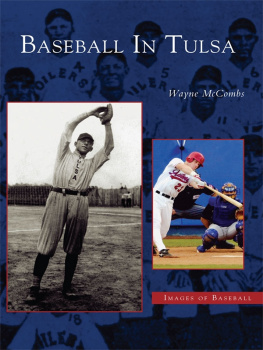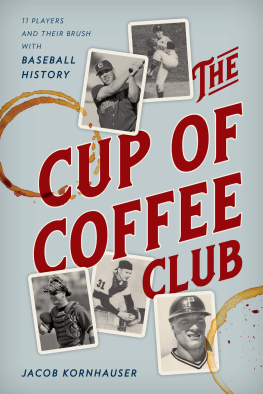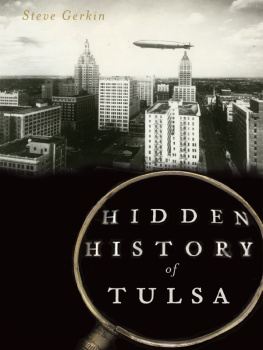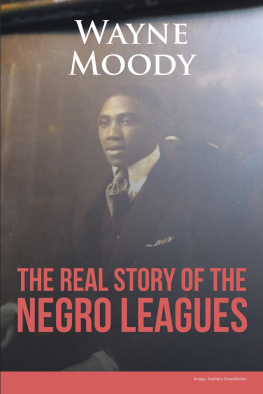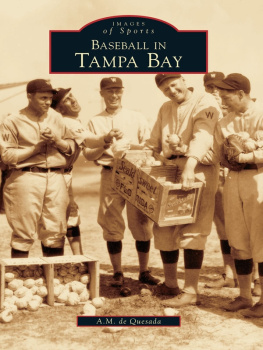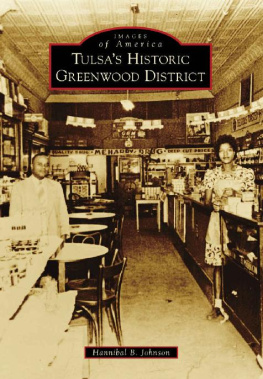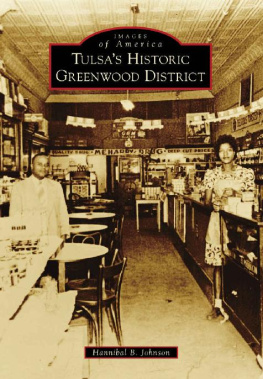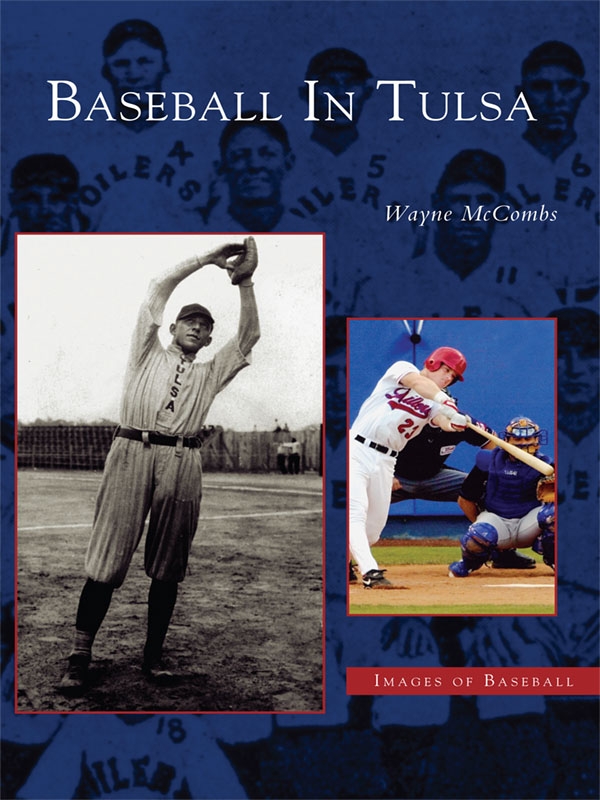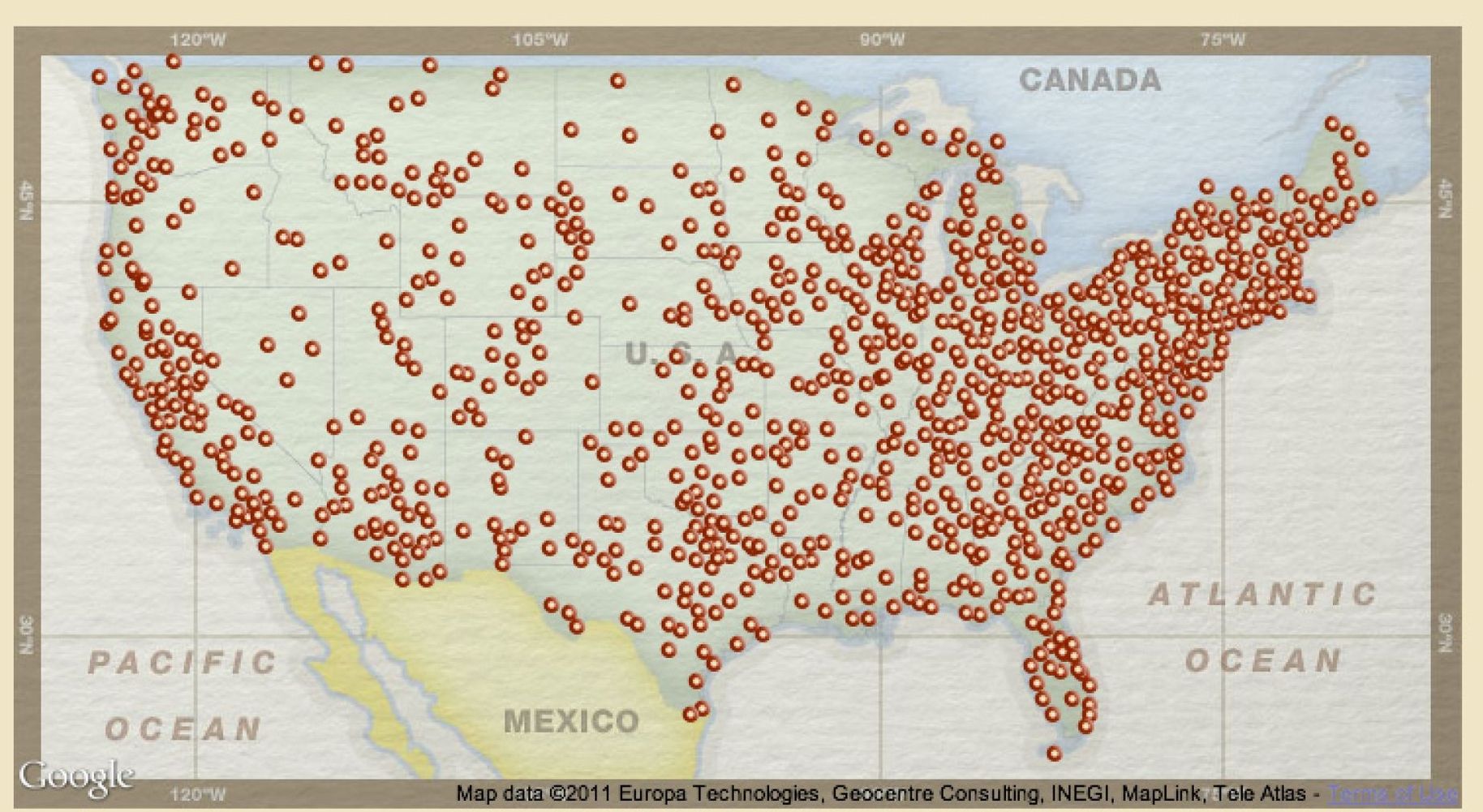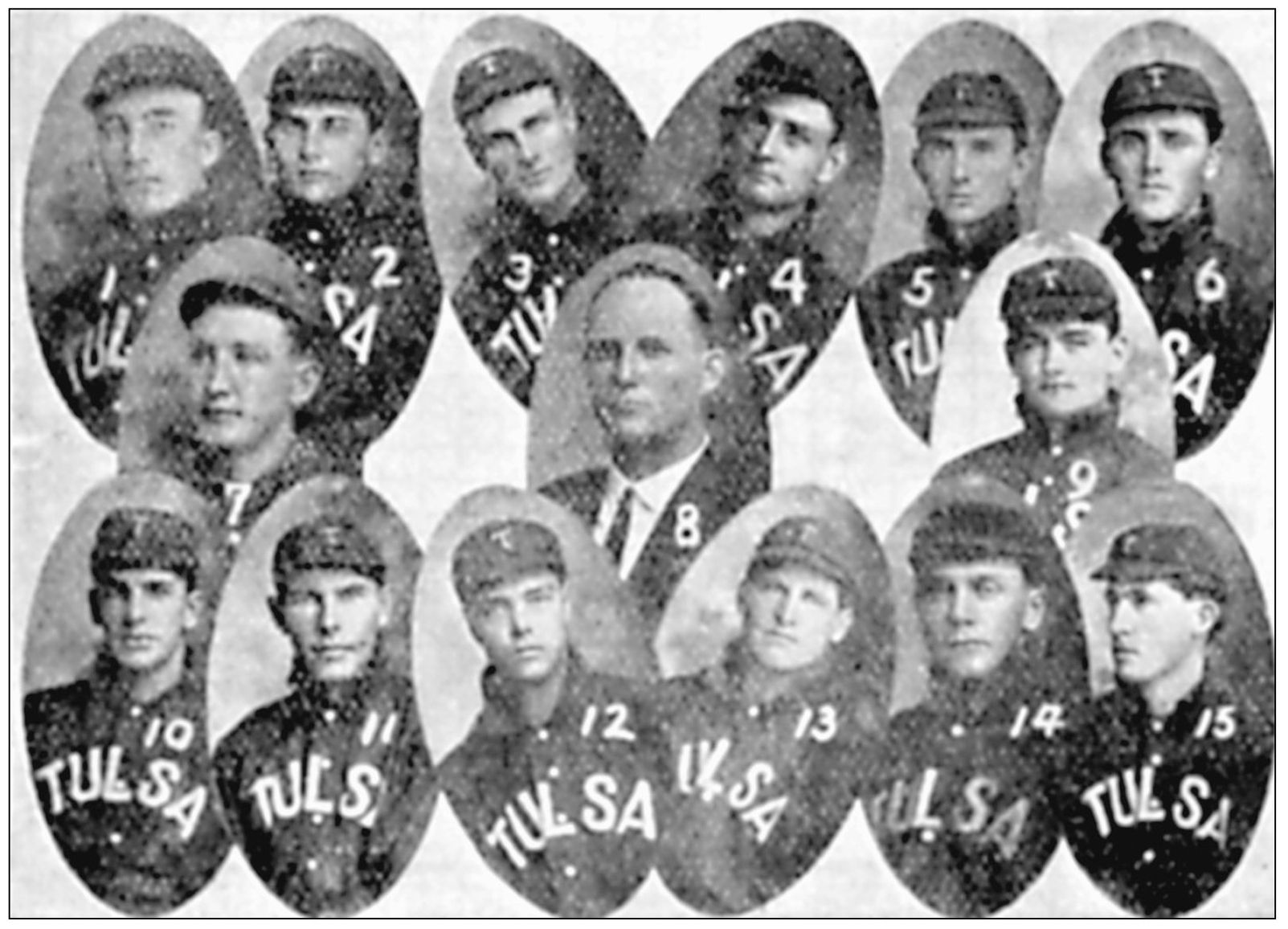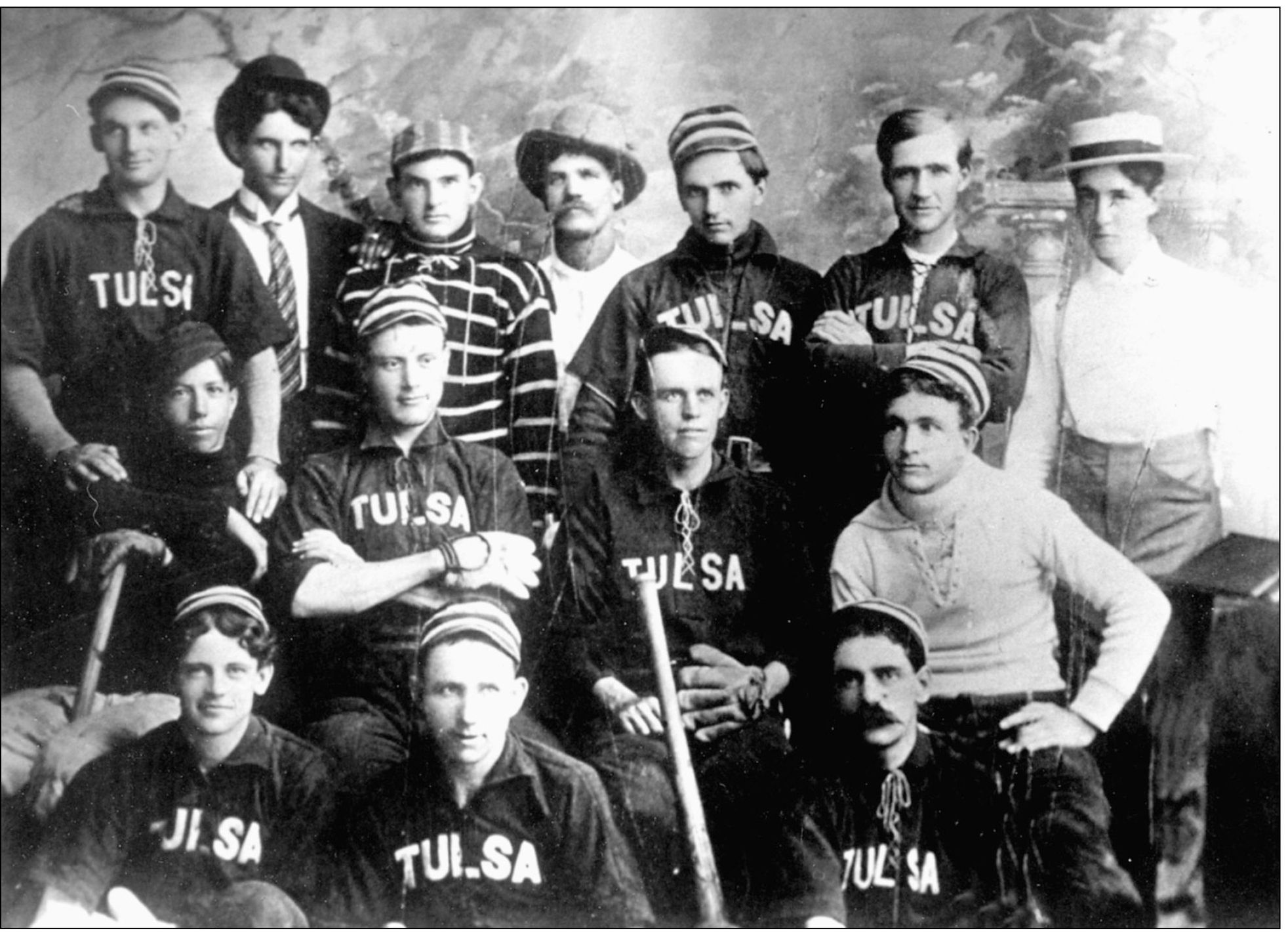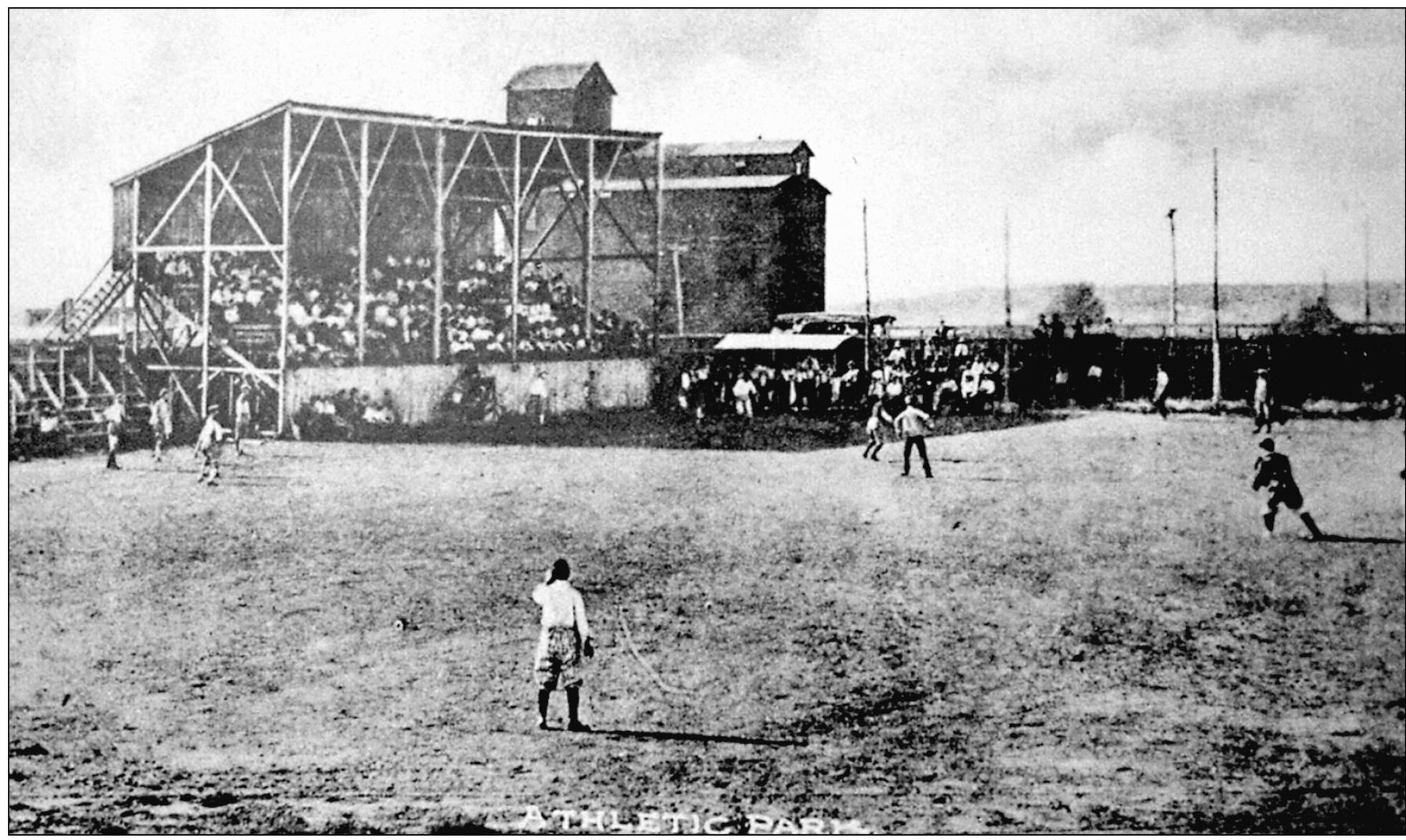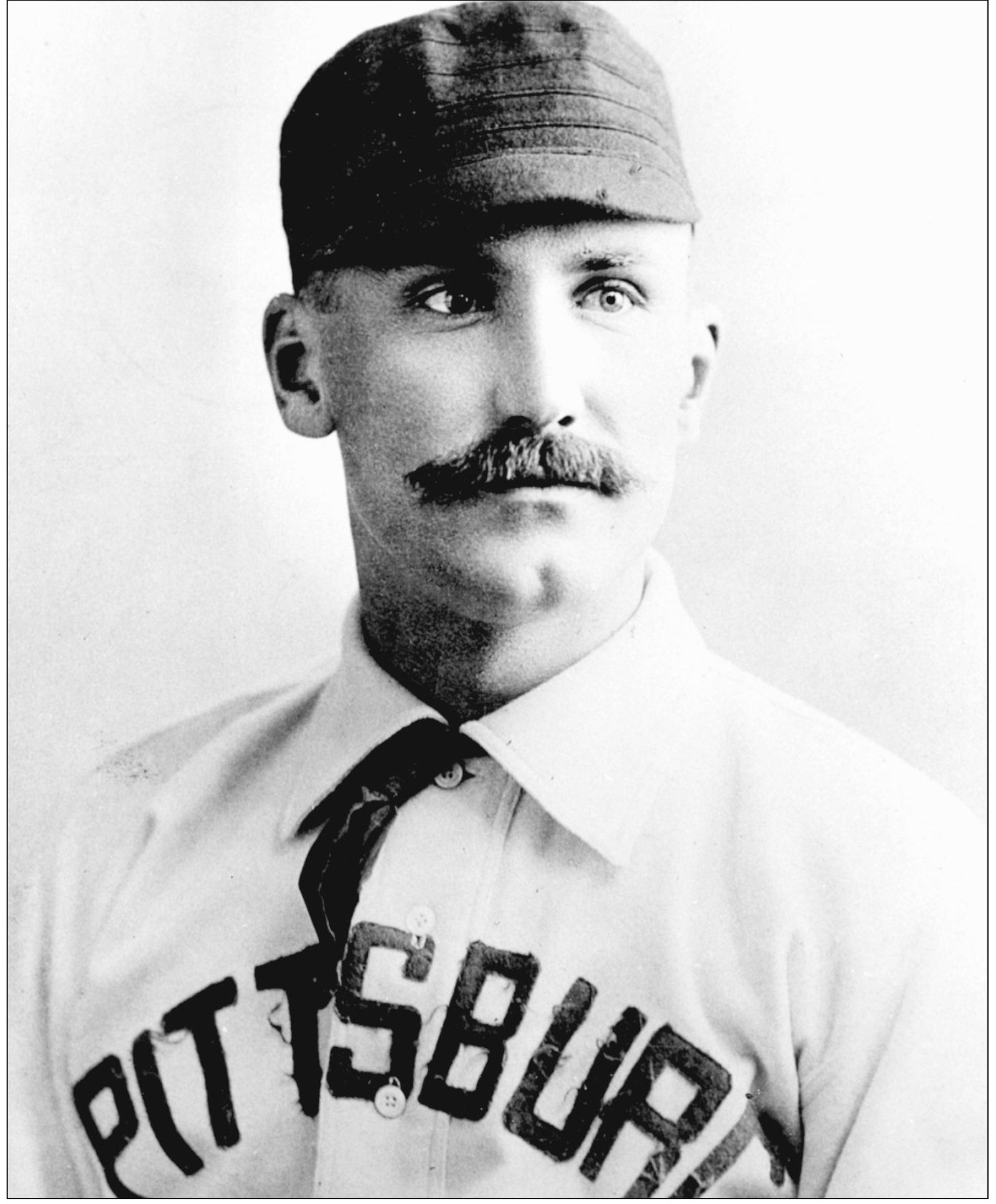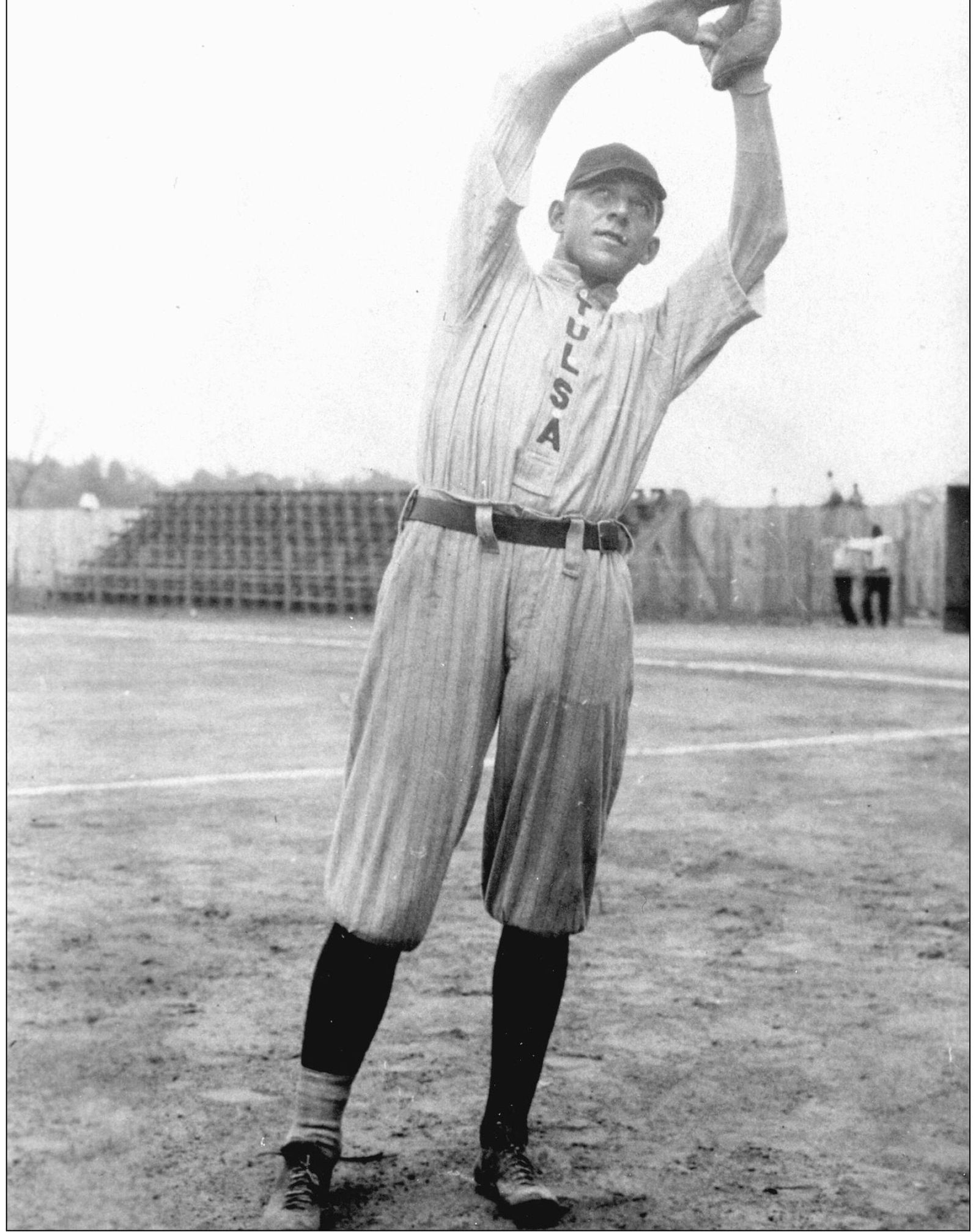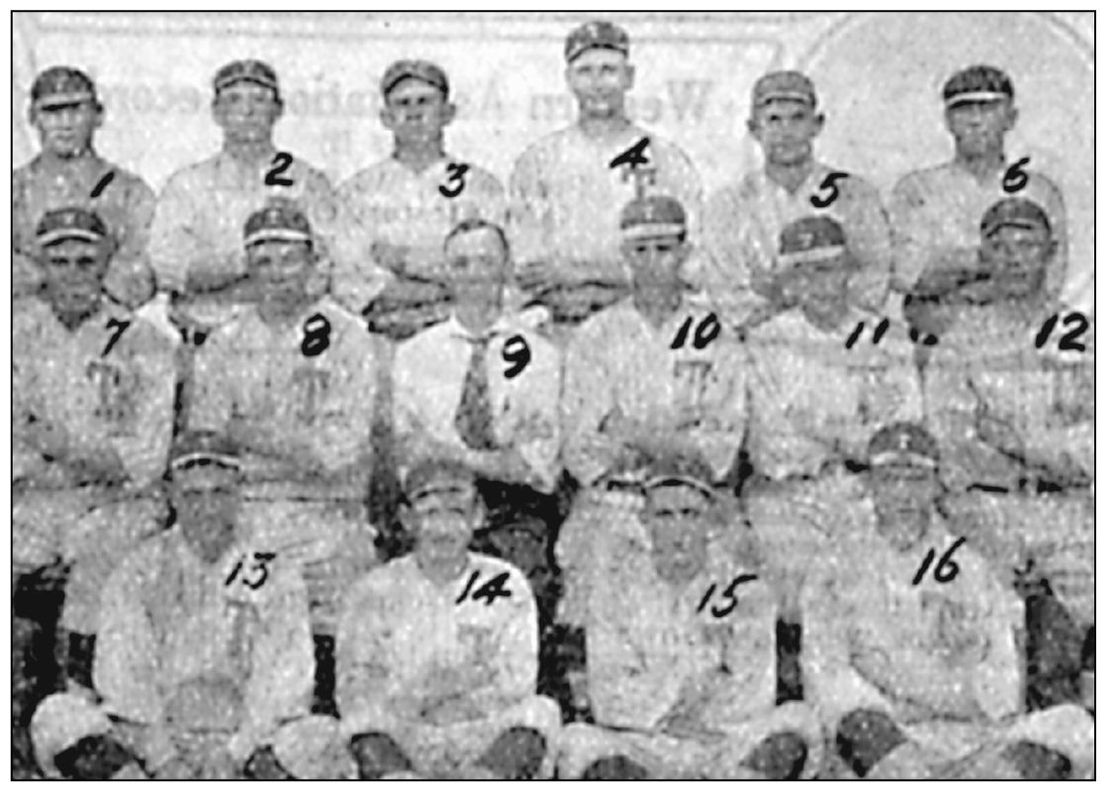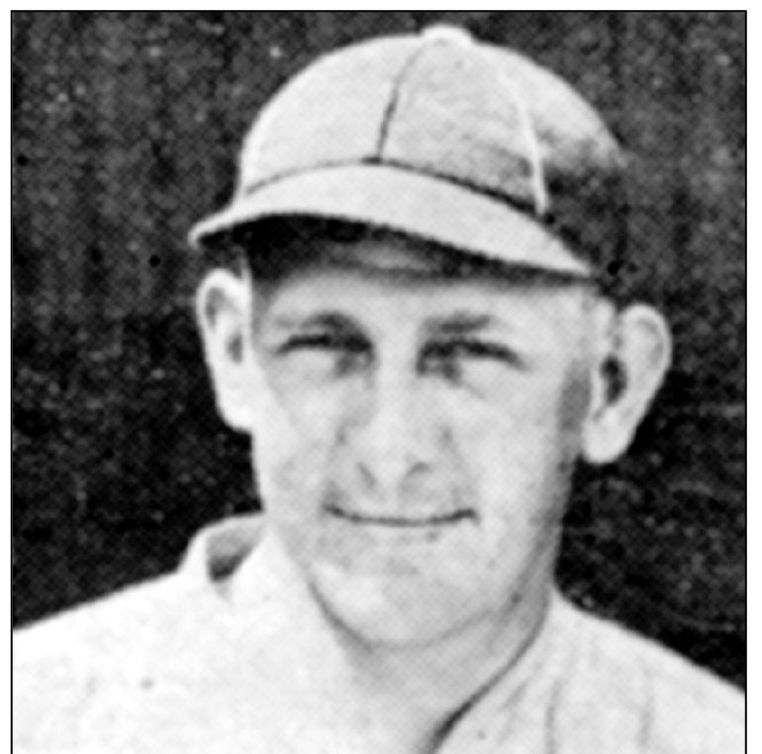FIRST INNING
The Early Years
18931919
The 1908 Tulsa Oilers of the Oklahoma-Kansas League won Tulsas first championship with a record of 72-54. Pictured are: 1. Lyons, 2. Long, 3. Speck, 4. R. Gill, 5. Denny, 6. Alford, 7. Saurwein (manager), 8. T.C. Hayden (president), 9. J. Kelly, 10. W. Kelly, 11. Mason, 12. Campbell, 13. Wolverton, 14. J. Gill, and 15. Killillay.
The city of Tulsa was incorporated in 1898. But Tulsas baseball history can be traced back as far as 1893. Town Ball teams were common place among many towns in the Indian Territory. In the late 1890s, with Tulsas population growing to over 1000, a town ball team was formed to play against other cities near Tulsa, such as Bartlesville, Claremore, Sapulpa, and Vinita. The 1897 team was, from left to right: (first row) Sam McBirney, Charles Meadows, and J.H. McBirney; (second row) Arthur Perryman, Vic Prather, Charley Brown, and Roy Funk; (third row) Bob Hall, Frank Murdock (assistant manager), Tom Shackle (manager), John McBride (owner), Ott Boone, Don Hagler, and Hermie Romine (mascot).
Tulsas early baseball stadiums were little more than wooden stands set up on the edge of town by a cow pasture. Tulsa played in Athletic Park from 19061908. It was located on East First Street near Frankfort Avenue.
Jacob Peter Jake Beckley managed Tulsa to a sixth-place finish in 1907 in the Oklahoma-Arkansas-Kansas League. Research shows Beckley playing 32 games for the St. Louis Cardinals in 1907. Its presumed he joined the Cardinals when Tulsas season was finished.
Beckley played in the National League for 20 years, from 18881907, mostly with Pittsburgh and Cincinnati. He was a lifetime .308 hitter. Beckley holds the major league record for most games played at first base2,368. Hes the record holder for most putouts at first base in major league history (23,696) and accepted chances at first (25,000). Beckley hit three home runs in a game on September 26, 1897. He managed in the minor leagues for three more seasons and became an umpire in 1913 for the Federal League. He was named to the National Baseball Hall of Fame in 1971. (Photo Courtesy of National Baseball Hall of Fame Library, Cooperstown, NY.)
Tulsa had the nickname of Oilers from 190512 and 191976. The name Oilers was selected in a contest by fans before the 1905 season. A.M. Fleshman of Tulsa was one of three people to suggest Oilers. Fleshmans entry was selected in a drawing. When Tulsa failed to field a team in 1913, the new owner of the 1914 team decided to adopt the nickname Producers. Tulsa carried that nickname through the 1917 season. Due to World War I, Tulsa did not field a team in 1918. When Spencer Abbott brought baseball back to Tulsa in 1919, he went back to the Oiler name. Outfielder Clyde Henry (above) led the 1914 Producers, who finished second in the league in batting with a .301 average.
The 1916 Producers won the second half of the split season of the Western Association. Tulsa lost in the playoffs to Denison, Texas. The team was led by a pair of 20 game winners, Geist and Kraft. Pictured are: 1. Moore, 2. Geist, 3. Heatley, 4. Jones, 5. Gleason, 6. Clayton, 7. Kraft, 8. Brandon, 9. J. B. Scott (team owner), 10. Wooley, 11. Murphy, 12. Flowers, 13. Smith, 14. Lamb, 15. Brady, and 16. Stewart
Jesse Joseph Pop Haines pitched for the 1919 Oilers. He recorded a 5-9 record in 101 innings. He was sold to Kansas City in June and pitched another 213 innings and won 21 games! In 1920 he reached the majors with the Cardinals and lasted 18 years. Haines won 210 games for the powerful Cardinal clubs of the 1920s and 1930s, pitching in four World Series. He was one of the earliest masters of the knuckleball. Haines was elected to the National Baseball Hall of Fame in 1970.
Spencer Abbott moved his Western League club from Hutchinson, Kansas to Tulsa after the 1918 season. He persuaded the son of M.J. McNulty to convince his father to lease his land at Tenth and Elgin in downtown Tulsa for a baseball park. Short on cash, Abbott sold half his interest in the Oilers to Tulsa oilman Jim Crawford. Abbott went to St. Louis to see Ed Steienger, the contractor who built Sportsmans Park, home of the Browns and Cardinals. That stadium was home to the Cardinals until 1966. Returning with the plans, Abbott had McNulty Park built as a smaller version of Sportsmans in 22 days from February 10 to March 3, 1919. Abbott managed minor league teams from 19031947, winning 2,180 games, fifth all-time in minor league history. With Abbotts arrival and the new McNulty Park, Tulsa was about to begin a Western League dynasty.
SECOND INNING
The Roaring Twenties
19201929
In 1920, oil was flowing in gushers, making Tulsa the Oil Capital of the World. And Tulsa baseball was roaring, winning five championships. McNulty Park, patterned after Sportsmans Park in St. Louis, was a hitters haven. The cozy dimensions were 310 feet to left field, 320 to center field and a mere 274 feet to right field. Tulsa led the league in hitting seven times during the decade and set many team and individual batting marks. The Oilers won 90 games six times.

